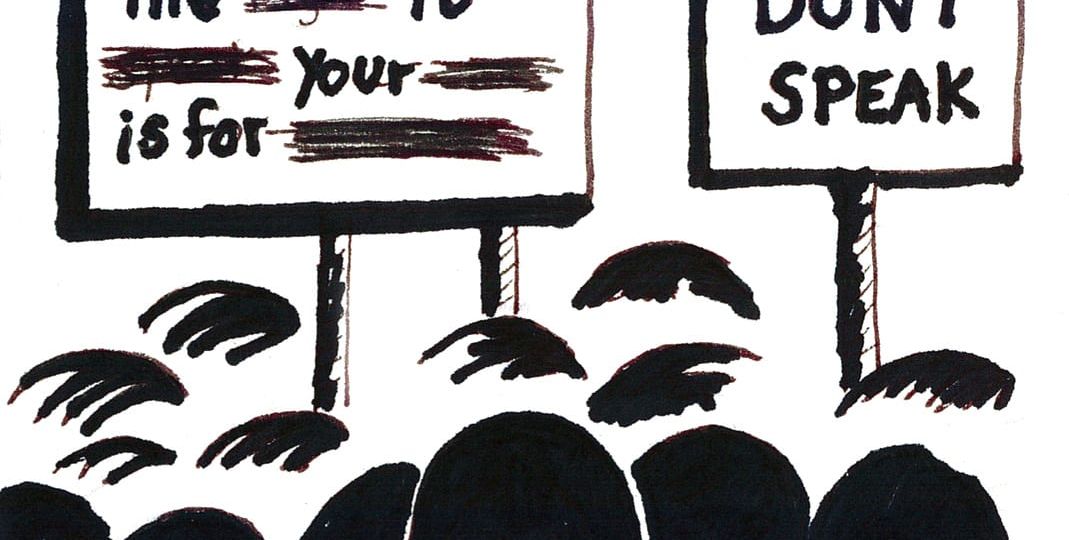
Ideally, college is meant to be an environment where young people can gather to learn and share ideas with one another, speaking without concern of being labeled negatively. Unfortunately, college campuses are becoming increasingly politically-charged arenas where many are hesitant to speak their mind for fear of being scorned or deemed offensive.
This increased focus on political correctness has caused some to limit themselves, and, in doing so, limit the potential for greater learning. This reputation extends beyond the campuses themselves, and many outside observers have noticed a shift in the college attitude. Both Jerry Seinfeld and Chris Rock have said that they no longer will do stand-up comedy in colleges because they have to make their acts too “clean” for fear of offending audiences. This phenomenon limits the performers as it shifts their focus from creating comedy to pandering to the whims of a finicky audience.
Beyond simply limiting comedians, the fear of critical response changes comedy as much as it shifts the focus of the craft. Often, comedy is used as a means of broaching uncomfortable issues that many would otherwise ignore.
If a comedian makes a joke about a difficult subject and we laugh, it becomes easier to talk about it because some of the fear and the stigma associated with it is gone. When comedians have to shape their act for fear of offending their audience, they are less free to broach difficult issues and we begin to define what people are and are not allowed to talk about.
The general desire to be politically correct may be well-intentioned, but effectively serves as a form of coddling. Beyond simply limiting the creativity of performers, this pressure can cause many to feel that they must tiptoe around the severity of divisive issues. This only serves to delude students into believing that they can expect this treatment in the real world, an expectation that will leave them woefully unprepared to deal with the harshness of reality.
Recently, the University of Michigan canceled a screening of the film “American Sniper” because members of the student body were uncomfortable with the content of the film. In refusing to broadcast the film, the University effectively separating itself from the outside world. While the popular film was still in theaters, students at this school decided not to broadcast it.
There are some examples of those resisting the tide of political correctness. The University of Cardiff in Wales recently asked acclaimed author and feminist Germaine Greer to give a lecture to its students. In response, a small group of students protested her arrival due to her beliefs related to the transexual community. The administration upheld their decision to host the lecture, stating that cancelling it would go against the values of free speech.
Regardless of personal feelings, it is valuable to engage ideas different from our own. Colin Riordan, the university’s vice-chancellor told The New York Times, “Our events include speakers with a range of views, all of which are rigorously challenged and debated.”
Political correctness at colleges becomes a problem when it begins to inhibit education and prevent effective dialogue. The more we limit ourselves for fear of being offensive, the more constrained intellectual discourse becomes.
Conor Devlin ’17 (devlin@stolaf.edu) is from New York City, N.Y. He majors in English.

